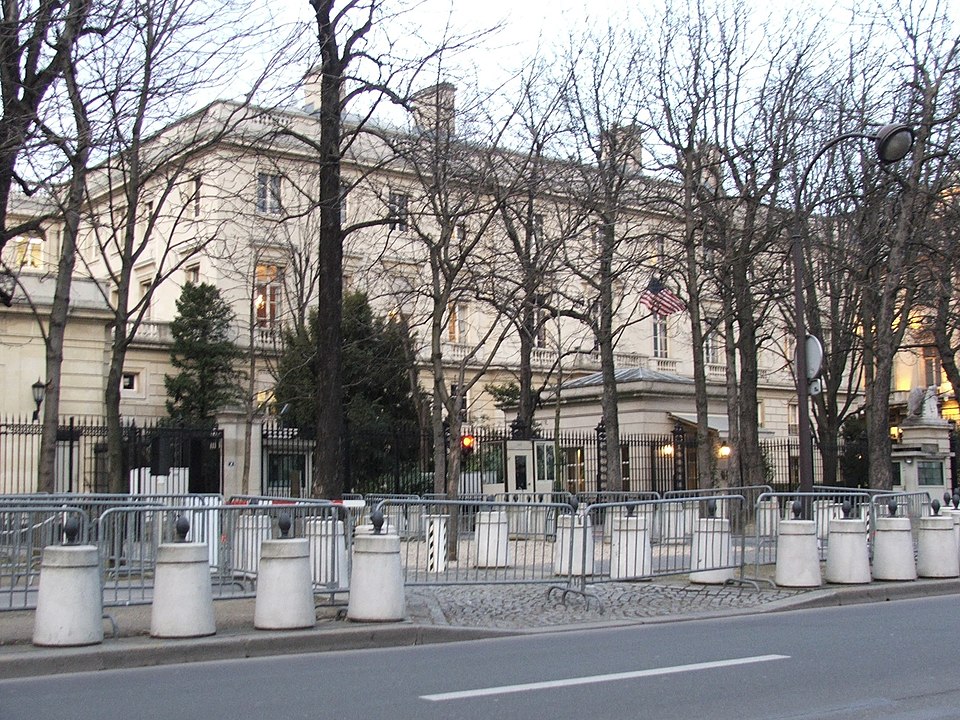
French President Emmanuel Macron has sharply pushed back against U.S. Ambassador Charles Kushner, calling his public criticism of France’s handling of antisemitism “unacceptable” for
someone in a diplomatic role.
Kushner, who is also Jared Kushner’s father and President Trump’s father-in-law, wrote a letter published in the Wall Street Journal last month accusing Macron’s government of failing to do enough to fight antisemitism in France. He also linked France’s foreign policy positions on Israel and Palestine to attacks against Jews inside France.
In his letter, Kushner said he was “deeply concerned” by a rise in antisemitism and argued that France’s recognition of Palestinian statehood, along with criticism of Israel, “embolden extremists” and put Jewish communities at risk. He urged Macron to fully enforce hate-crime laws, protect synagogues and schools, and stop “legitimizing Hamas.”
But Macron isn’t having it. Speaking in Paris with CBS’ Face the Nation moderator Margaret Brennan, he said Kushner’s remarks crossed a line:
“This is unacceptable. A diplomat doesn’t get to make these kinds of public accusations against the host country,” Macron said, calling Kushner’s comments a “mistake.”
France’s foreign ministry even summoned Kushner last month for a formal dressing-down, citing the Vienna Convention, which prohibits diplomats from interfering in a country’s internal affairs.
The U.S. State Department, however, has defended Kushner, saying he’s doing “a great job advancing our national interests.”
Macron, who was the first French president to adopt the definition equating antisemitism with anti-Zionism, said it’s wrong to claim that criticizing Israel automatically equals hatred of Jews. He stressed that France firmly condemns antisemitism but that doesn’t mean it must agree with every policy of Prime Minister Benjamin Netanyahu’s government.
“Disagreeing with the Israeli government doesn’t make me antisemitic,” Macron said.
Netanyahu, leading Israel’s most right-wing government in history, has been waging a nearly two-year war in Gaza. The campaign began after Hamas’ October 7, 2023 attacks that killed 1,200 Israelis. While Israel has killed Hamas leaders, tens of thousands of Palestinians have died, and humanitarian aid blockades have driven Gaza toward famine. Hamas, Macron pointed out, still recruits new fighters, showing that military action alone won’t solve the problem.
That’s why Macron has been pushing a peace plan with Saudi Arabia: first a ceasefire, then the release of Israeli hostages, followed by humanitarian aid, reconstruction of Gaza, and finally a pathway to a two-state solution. France has also persuaded Palestinian Authority President Mahmoud Abbas to publicly denounce Hamas and commit to reforms and elections.
France is now preparing to formally recognize Palestinian statehood at the UN General Assembly in New York, alongside the U.K., Canada, and Australia. For Macron, recognition is not symbolic but essential: “Recognizing the Palestinian state today is the only way to provide a political solution to a situation which has to stop,” he said.
This move pits France directly against both Netanyahu and the Trump administration, which continues to block Palestinian representatives from diplomatic meetings and has floated ideas of relocating Gazans to other countries rather than supporting statehood.
Despite Trump’s occasional remarks criticizing Israel’s tactics in Gaza, the U.S. remains Israel’s closest ally and primary arms supplier — a reality that leaves France increasingly at odds with Washington over how to end the conflict. Photo by Krokodyl, Wikimedia commons.









































